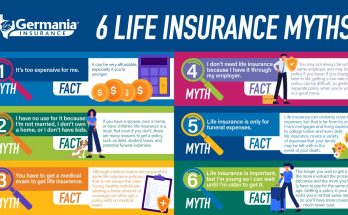Financial confidence is not just about having money in the bank or a well-diversified investment portfolio. It’s about knowing that you’re prepared for whatever life throws your way. It’s the quiet assurance that your financial foundation is strong enough to weather uncertainty, absorb shocks, and support your goals. Insurance plays a vital role in cultivating this kind of confidence. It’s not merely a safety net—it’s a strategic tool that reinforces stability, empowers decision-making, and allows individuals and businesses to move forward with clarity and peace of mind.
At its most basic level, insurance provides protection against financial loss. Whether it’s health coverage that shields you from overwhelming medical bills, auto insurance that covers damages after an accident, or life insurance that ensures your loved ones are cared for, the principle is the same. Insurance transforms unpredictable risks into manageable costs. This transformation is what builds confidence. Instead of fearing the unknown, you know you have a plan. You’re not gambling with your future—you’re safeguarding it.
This sense of preparedness has a ripple effect on financial behavior. When people feel secure, they’re more likely to make proactive choices. They invest in their education, pursue career opportunities, and plan for long-term goals like homeownership or retirement. They’re not held back by the fear of financial ruin from a single event. Insurance gives them the freedom to focus on growth rather than survival. It’s the difference between living cautiously and living intentionally.
For businesses, insurance is equally empowering. Entrepreneurs face a unique set of risks, from property damage to liability claims to employee health issues. Without adequate coverage, these risks can derail operations and threaten viability. But with the right insurance in place, businesses can operate with confidence. They can take calculated risks, expand into new markets, and innovate without constantly looking over their shoulder. Insurance becomes part of the strategic infrastructure, enabling resilience and agility.
Financial confidence also stems from clarity. Insurance, when communicated effectively, helps people understand their financial landscape. It prompts them to assess their assets, evaluate their vulnerabilities, and make informed decisions. This process fosters financial literacy and self-awareness. It encourages people to think critically about what they value and how they want to protect it. When insurance is explained in relatable terms—without jargon or complexity—it becomes accessible. It’s no longer a confusing obligation; it’s a thoughtful choice.
Technology has made it easier to integrate insurance into everyday financial life. Digital platforms allow users to compare policies, manage accounts, and file claims with ease. Personalized recommendations and real-time updates help people stay engaged and informed. But the most impactful technology goes beyond convenience—it enhances understanding. When people can see how their coverage works, adjust it as their needs change, and access support when they need it, insurance becomes a dynamic part of their financial strategy. It’s not just a product—it’s a partner.
Education is another key component. Many people feel intimidated by insurance simply because they’ve never been taught how it works. They don’t know what questions to ask, what coverage they need, or how to navigate claims. When insurers invest in education—through content, consultations, or interactive tools—they empower customers to make confident decisions. This empowerment reduces anxiety and builds trust. It turns insurance from a reactive measure into a proactive resource.
The emotional dimension of financial confidence is also worth exploring. Money is deeply tied to emotion—security, freedom, stress, and self-worth. Insurance, when delivered with empathy and care, supports emotional well-being. A compassionate claims process, a reassuring voice on the phone, or a proactive check-in can make all the difference. These moments of connection reinforce the idea that insurance is not just about numbers—it’s about people. It’s about showing up when it matters most and helping individuals feel supported, not just covered.
Ultimately, insurance is a form of financial confidence because it reflects intentionality. It’s a decision to prepare, to protect, and to prioritize stability. It’s a commitment to yourself, your family, or your business that says, “I’m thinking ahead. I’m planning for what might happen. I’m creating a foundation I can rely on.” That mindset is the essence of financial confidence. It’s not about eliminating risk—it’s about managing it wisely. And when insurance is understood, embraced, and aligned with real needs, it becomes a powerful ally in the pursuit of a secure and empowered financial life.



